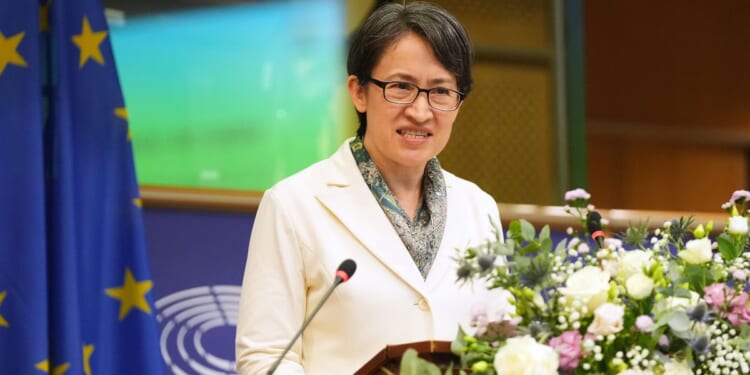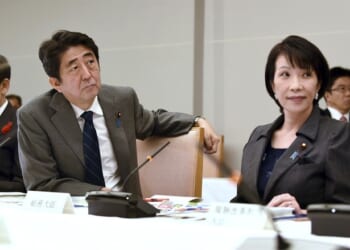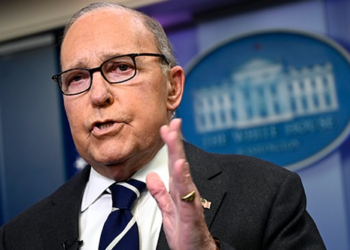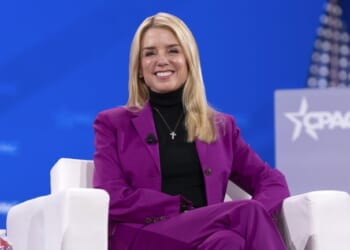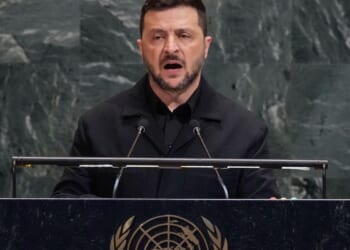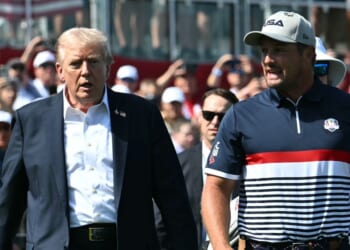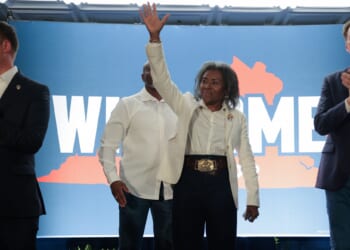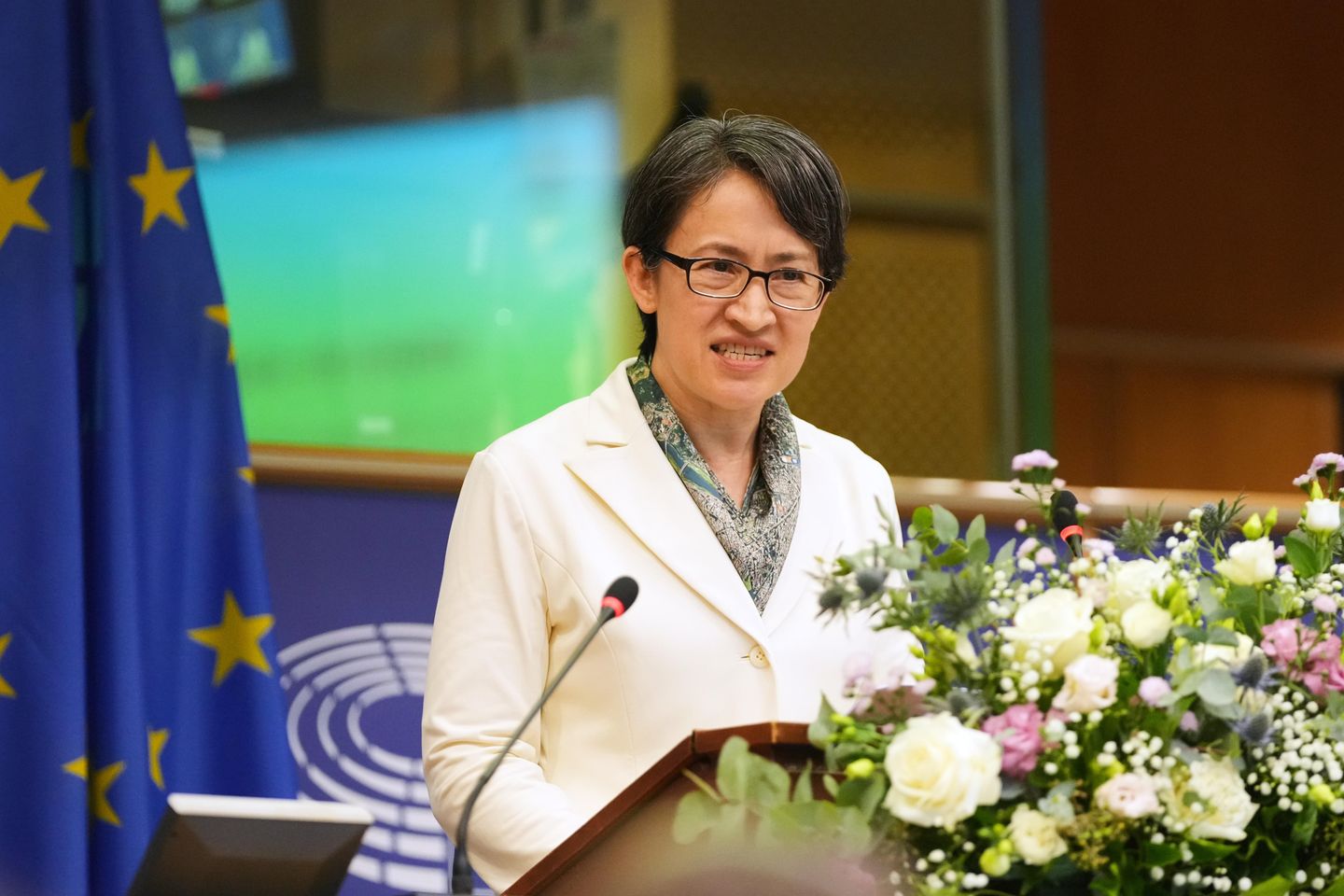
SEOUL, South Korea — China’s unflinching fixation on Taiwan is dominating diplomatic channels on two continents this week as Beijing fumes over a surprise speech Friday in Brussels by a top Taiwanese politician and blunt comments on defending Taiwan the same day in Tokyo from Japan’s hawkish new prime minister.
The Trump administration hasn’t weighed in, fueling speculation that the U.S. may be offering tacit support for democratic Taiwan and its allies. Meanwhile, Beijing has responded by resurrecting a format of angry rhetoric it once cast aside: “Wolf Warrior” diplomacy.
Beijing lodged a protest with the European Parliament after Taiwanese Vice President Hsiao Bi-khim spoke in the European Parliament building Friday. Chinese officials denounced Ms. Hsiao as “a key separatist.”
China considers Taiwan a renegade province that should and will be reunited with the mainland, and it has not ruled out force to achieve reunification. Authoritarian Beijing has effectively leveraged its economic might to compel nations around the world to recognize it, rather than democratic Taipei.
Ms. Hsiao’s address was camouflaged by earlier indications that she would speak by video. In fact, she turned up and spoke in person, flanked by banners reading “eurparliament.eu.”
According to her audience, the Inter-Parliamentary Alliance on China, or IPAC, her address was “the first ever delivered by a senior member of the Taiwanese government in a European legislature.”
“Europe has defended freedom under fire. And Taiwan has defended democracy under pressure,” Ms. Hsiao told IPAC representatives. “This summit is more than a European forum. It is a global moment.”
Ms. Hsiao did not address the EU Parliament specifically. IPAC is an interest group that unites individual parliamentarians from various democratic assemblies not just in Europe but also in nations such as Britain, Canada, Japan, India, the U.S. and Taiwan itself.
Per its website, IPAC believes “the Chinese Communist Party is increasingly authoritarian at home and ever more assertive abroad.” It urges members to demand accountability from Beijing.
The EU said Ms. Hsiao’s address to IPAC was not official, regardless of its location.
Taiwanese Foreign Minister Lin Chia-lung, who accompanied Ms. Hsiao, called the event “a historic step for Taiwan’s diplomacy and a new stage in Taiwan-EU relations.” Ms. Hsiao’s address was the centerpiece of IPAC’s fifth annual summit in Brussels last week.
Taiwanese President Lai Ching-te subsequently made clear that he had deployed Ms. Hsiao to Brussels. Singapore-based China watcher Alex Neill called her “eloquent and engaging.”
Beijing slammed Mr. Lai’s ruling machine, the Democratic Progressive Party.
“The DPP authorities’ collusion with [IPAC] to stage a farce will only make them a laughingstock and bring shame upon themselves,” said Chen Binhua, a spokesperson for China’s State Council Taiwan Affairs Office, per state media Global Times.
On the other side of the world, newly minted Japanese Prime Minister Sanae Takaichi said in the Diet, in response to a question from the floor, that if a Taiwan contingency includes “warships and the use of force … then that could constitute a situation threatening [Japan’s] survival, whichever way you look at it.”
Per a 2015 “reinterpretation” of Tokyo’s pacifist constitution, situations that threaten national survival release Japanese forces to engage in actions of “collective defense.”
Beijing reacted sharply to Ms. Takaichi, who is seen, like many other Japanese conservatives, as pro-Taiwan. The island is proximate to Japan’s southern islands and is the only state in the Indo-Pacific that holds fond memories of Japanese imperialism.
China’s consul general in Osaka, Xue Jian, tweeted on X, referencing Ms. Takaichi’s comments: “We have no choice but cut off that dirty neck that has been lunged at us, without hesitation. Are you ready?”
Tokyo officials described the message as “extremely inappropriate,” and it was subsequently deleted after gaining widespread attention. However, Beijing did not reprimand its diplomat.
Ms. Takaichi’s stance is “highly inconsistent with the political commitments made by the Japanese government so far and is egregious in terms of both the nature and impact,’ Global Times quoted Beijing Foreign Ministry spokesperson Lin Jian as saying Monday. “China deplores and opposes that and has made serious demarches and protests to Japan.”
In fact, Ms. Takaichi’s position is not new.
The importance of Taiwan for Japan’s security was made clear in a Japanese defense white paper published in 2021. Featuring a mounted samurai on the cover, it said, “Stabilizing the situation surrounding Taiwan is important for Japan’s security and the stability of the international community.”
Even that did not reverse Japan’s basic policy of “strategic ambiguity,” University of Tokyo security expert Yasuhiro Matsuda told the National Bureau of Asia Research in 2021.
“The new phrases only reflect the immediate sense of crisis and concern over the Taiwan Strait; they do not indicate major policy changes,” he said.
One expert said he thinks the developments of recent days may reflect a quiet new pro-Taiwan policy in Washington and a reignition of more strident rhetoric in Beijing.
“I think there is a twofold factor,” said Mr. Neill, an expert on the Chinese military.
“The U.S. may be exerting less control over Taiwan on the international stage,” he said. “In the past, it might have called for Taipei to exercise restraint when it comes to addressing legislatures abroad, but now it has free rein.”
He said Marco Rubio’s State Department may be “quite warm” toward groupings such as IPAC.
As for Mr. Xue’s angry remarks from the Chinese Consulate in Osaka, Mr. Neill said, “Osaka has been a sort of beacon for ‘Wolf Warrior’ diplomacy, stirring the pot on issues like Okinawa and [Japan’s] Ryukyu Islands.”
“Wolf Warrior” diplomacy was a format of angry, nationalistic rhetoric deployed by Chinese officials against critics in the media and online domains from the 2010s to 2020s.
“Wolf Warrior” refers to a pair of “Rambo”-esque Chinese action films released in 2015 and 2017.
The stridency was toned down in 2021-2022 after, some believe, it generated backlash against Beijing.
For a diplomat to “use that kind of wholly undiplomatic language” against another country’s leader “may lead to a loss of credentials,” Mr. Neill opined, but he noted that Mr. Xue’s remarks generated no condemnation from his superiors.

